"MosaLingua" - Learning Italian - A Review
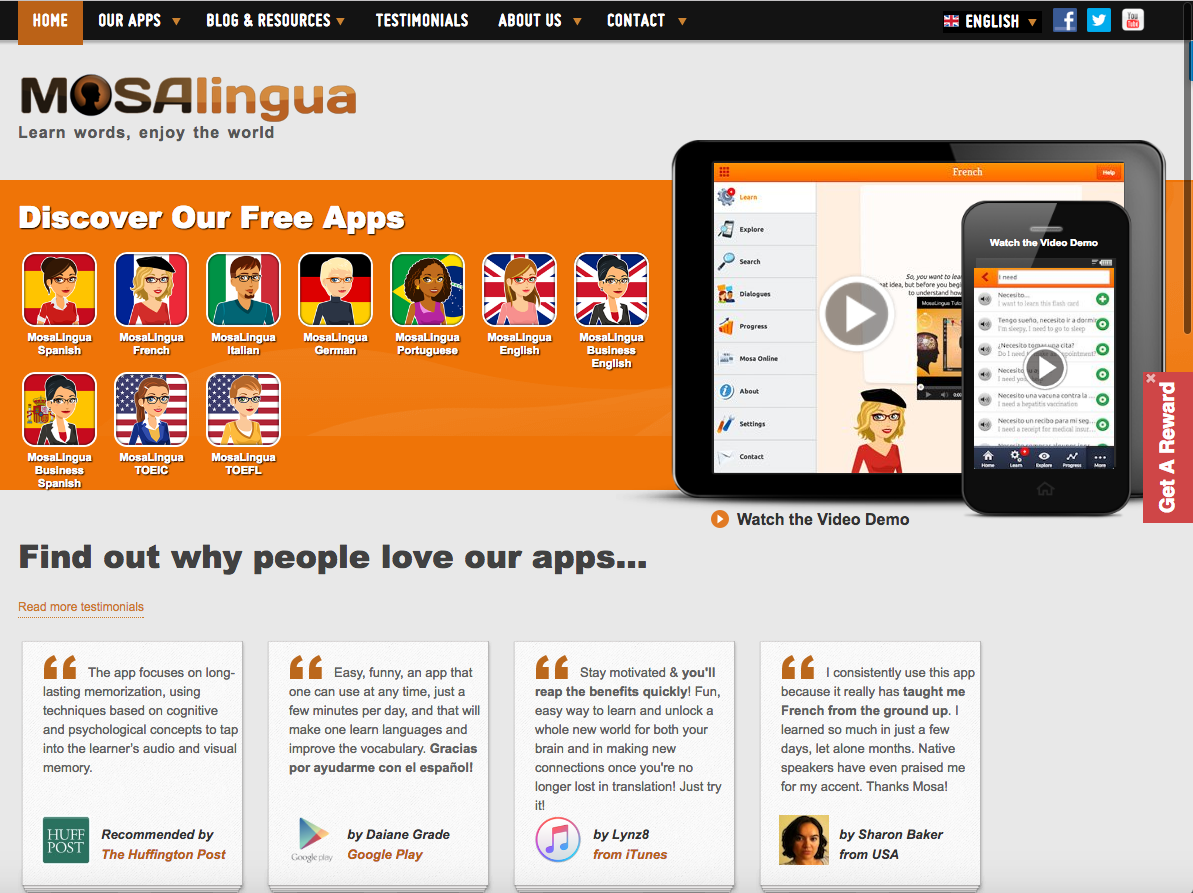 Have you heard of MosaLingua? I found it, while I was looking for an iOS app to practice and improve my Italian. (There is also a web version, which you can access here for several other languages.)
Have you heard of MosaLingua? I found it, while I was looking for an iOS app to practice and improve my Italian. (There is also a web version, which you can access here for several other languages.)
I had put Italian aside for a couple of years, because I wanted to focus on Spanish (and was afraid of interference between the two languages).
It's been a nice way to ease myself back into Italian. I've actually found that using a different program for Italian (than for Spanish) helps me to minimize interference between the two. (I have a visual memory. When I'm recalling a word, I also remember the visual context in which I learned it.)
WHAT IS MOSALINGUA?
MosaLingua is a range of flashcard-based vocabulary apps for iPhone, iPad, and Android devices.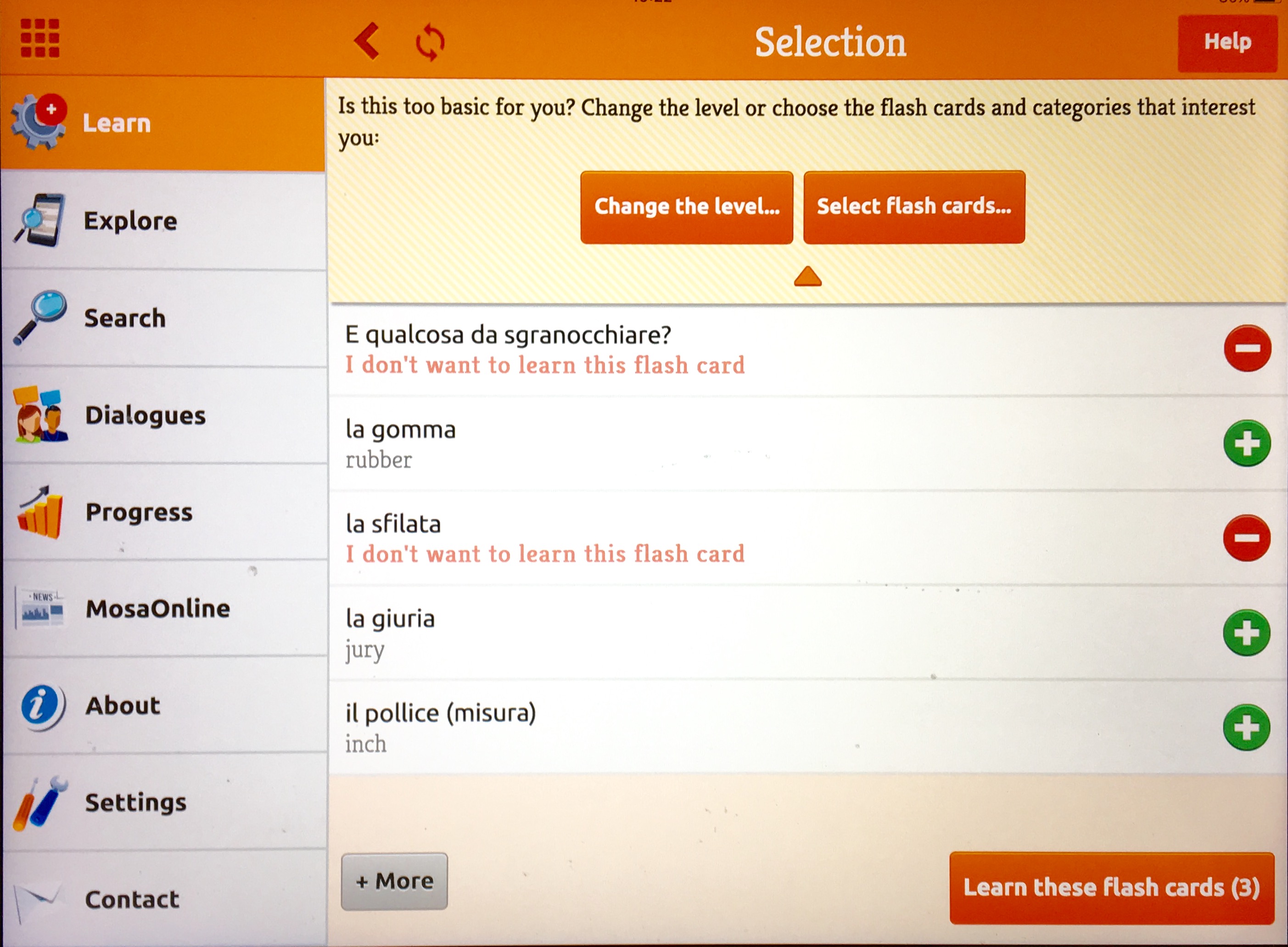 It has a great, uncluttered design, easy to use layout, and a number of cool features.
It has a great, uncluttered design, easy to use layout, and a number of cool features.
The vocabulary you learn is extensive and highly practical. Moreover, you can choose what to learn and at what level.
Your learning is driven by a spaced repetition system for refreshing your memory. Ideally, whatever you learn will be reviewed 8 hours later, then 2 days, 8 days, 1 month later, at which time it should be in your long-term memory.
Currently, there are apps for 6 languages: English, French, Spanish, Italian, German, and Brazilian Portuguese, and for any language combination between them (eg. French for Italian speakers; German for Spanish speakers, etc.).
There are also individual applications that teach Business language, Medical vocabulary, and, for those learning English, Test preparation for TOEFL [Test of English as a Foreign Language] and for TOEIC [Test Of English for International Communication].
CONTENT SETTINGS, LEVELS, CATEGORIES
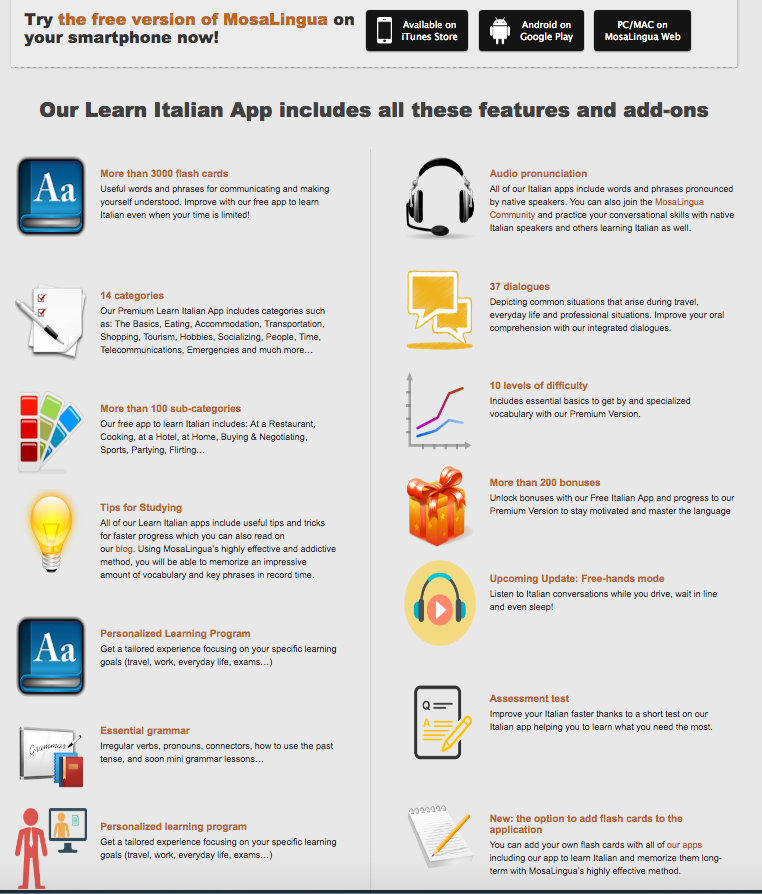 When you start, you're asked to set a learning objective: Travel, Speak and socialize, Work and do business, Improve grades, Pass an exam, Other. You can change your objective at any time.
When you start, you're asked to set a learning objective: Travel, Speak and socialize, Work and do business, Improve grades, Pass an exam, Other. You can change your objective at any time.
Within an app, you can change the teaching language. I, for example, have the option to learn Italian from any of the 5 other languages. At the moment, my "preferred language" setting is English.
My husband Peter is currently using Spanish as the teaching language to practice his Italian. He actually says that it helps him to not mix up the two languages (as he usually does). In a couple of weeks, I'll start learning Italian from Spanish to find out whether it works for me as well.
When you begin, you can take a "Level test" (find this in "Settings"), or you can choose a level of difficulty to start with. You can change the difficulty level at any time. Italian has 12 levels.
Next, choose what type of vocabulary you'd like to start with. For Italian, there are 16 Categories and 4 Episodes of a Travel Story: Fabrice's Trip to Cambodia. The categories include many which you'd typically find in a travel guide, e.g. Eating, Accommodation, Transportation, Shopping, Tourism, Emergencies, Time and Weather, etc. But there also are others, such as Hobbies, Socializing, People, Telecommunications, etc.
Optional Packs for the more advanced users offer further possibilities. There are many materials included in the fee-based Italian apps, as the above screenshot shows. You'll find over 3,000 Flashcards, organized in 16 main and 100 subcategories and 10 levels of difficulty, Tips for studying, 37 Dialogues, 200 "Bonus" items, and more.
Just for registering on MosaLingua's website, you can download an ebook: "The 6 essential tools to learn a language," as well as 5 Phrasebooks (French, Spanish, Italian, German, and Portuguese), and more.
LEARN and PRACTICE
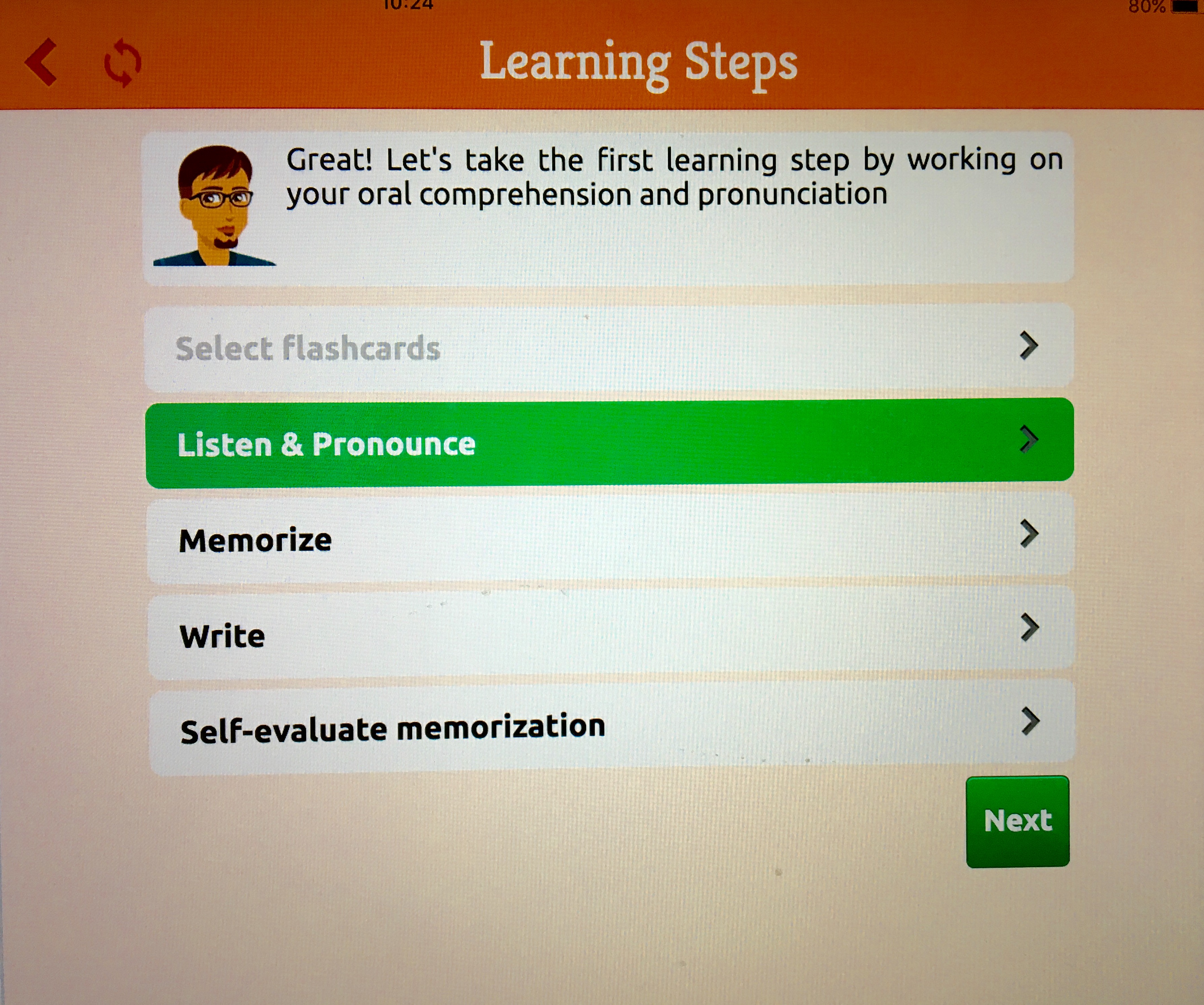 Now, you're ready to start learning the 5 flashcards that show up.
Now, you're ready to start learning the 5 flashcards that show up.
You'll follow these Learning Steps:
• Listen & Pronounce: Then Repeat and Record.
• Memorize: An English cue and a picture help you remember the word or phrase.
• Write: You translate words, or arrange words into short sentences.
• Self-Assessment: You test yourself with an English cue and a picture.
Your self-assessment determines the recall schedule. (You can choose: Again, Difficult, Good, Perfect.)(As I already knew the first batch of Italian words, I clicked on "Perfect,"only to be alerted that this "assessment" will not provide any information for the recall schedule. So, I set a more difficult level and switched to "Good" for the next few times.) You'll practice these flashcards again eight hours later or the next day, before you start learning with new flashcards.
DIALOGUES
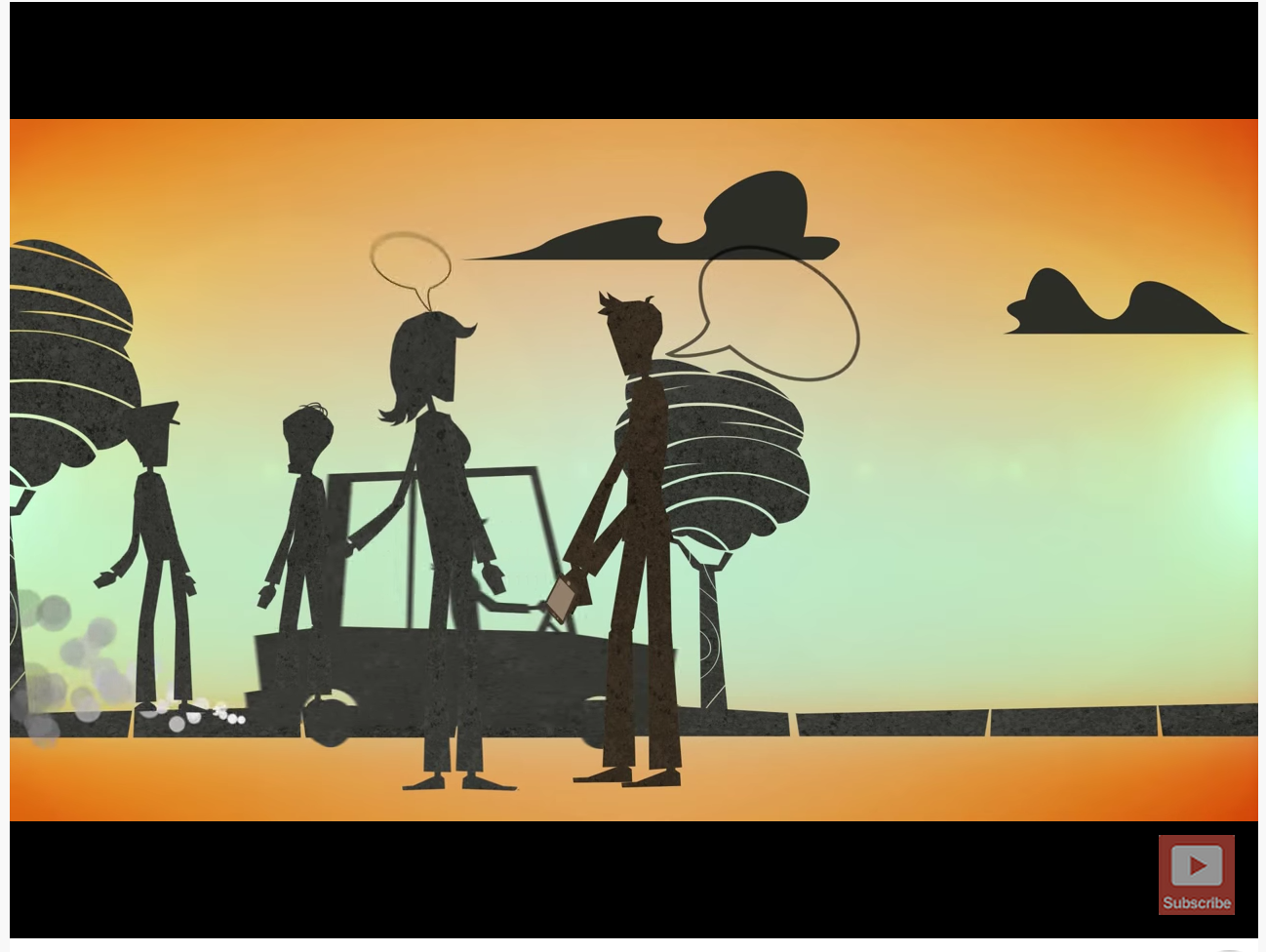 There are 34 Dialogues. The audio of each is about 60 to 90 seconds long. They depict specific situations, such as Introducing yourself, Taking a taxi, Talking about your trip, Buying a bus ticket, On the phone, etc.
There are 34 Dialogues. The audio of each is about 60 to 90 seconds long. They depict specific situations, such as Introducing yourself, Taking a taxi, Talking about your trip, Buying a bus ticket, On the phone, etc.
As with individual words and phrases, you can listen to the full dialogue with several options: Audio only, Audio with target language subtitles, Audio with English subtitles.
With each of these options, you learn a little differently. Following a conversation by just hearing it, allows you to focus just on the sounds, while your brain figures what the rush of words means. It's exhilarating to suddenly start getting the meaning of what you hear.
Finally, you can choose to go through the dialogue sentences to memorize them, with the option of adding any of them to your learning stack. Under the section "Dialogues," you'll find "Travel Stories." With these, you not only learn travel language, but also follow the adventures of Fabrice on his trip to Cambodia. At this time, there are 4 Episodes in Italian. The approach is the same as with other Dialogues.
GRAMMAR LATER
There are few explicit grammar lessons in the early MosaLingua lessons. Co-founder Luca Sadurny explains: "In my opinion, it's best to start to learn a language by listening, memorizing vocabulary, repeating loud sounds, words and sentences. ... Especially at first, when you learn grammar it can be a real drag when learning how to speak. ... But, [grammar] will prove to be useful later on."
We actually do agree with Luca on this. Focusing on grammar rules too early will inhibit you from speaking. Once you have absorbed the basics of the language and acquired sufficient vocabulary, you'll begin noticing and remembering some of the grammatical patterns. And then you'll want to know more about some of the grammar rules. From time to time, at the end of the day's practice session, some grammar tips do appear, and, I assume more frequently as I progress.
Also, under "Categories" and "Lessons: Tips for Success," you'll find a section on "Italian Conjugation." It explains the conjugation of the auxiliary verbs "to be" and "have," as well as the conjugation rules for the various tenses of regular verbs. Some of the tips are not available in the "Lite" version.
ADVICE and TIPS
The MosaLingua Italian iOS app, which I am using, offers lots of advice and practical tips. (There is also a web version you can access here.) Two quick examples out of many:
• At the end of the list of words in Level 0 (The Basics), you can tap on "Our advice on how to initiate a conversation with a stranger." You get practical tips, as well as 12 easy conversation starters. These are flashcards with audio, and a translation. For each, you have the option to add it to your learning stack.
• Or, after a flashcard practice, I'm told that I've put them into my long-term memory: "Long-Term Memory? What does it mean to have flash cards in your long-term memory? It simply means that the review sessions for these flash cards will be 30 days apart."
BONUS MATERIAL
As an inducement for continued study, MosaLingua offers "Bonus Material," which only unlocks after you have reviewed more cards and progressed. They include historic facts about Italy, quotes of Italian celebrities, Italian proverbs and jokes, as well as further learning advice, memorization techniques, and much more. As I've just started and have only studied about 50 flashcards to date, there's a lot of bonus material still waiting for me.
Language facts I recently unlocked:
• Around 59 million people are native speakers of Italian.
• In total around 85 million people speak Italian around the world.
• Italian is obviously the official language of Italy, but it's also an official language of Switzerland.
• You'll find many Italian speakers in Malta, Vatican State, Croatia, Slovenia and France (especially in Corsica).
• In addition, Italian is the second most spoken language in Argentina. (Source: Wikipedia)
Quotes:
• Un viaggio de mille miglia inizia sempre con un singolo passo. [by Lao Tzeu]
(A journey of a thousand miles must begin with a single step.)
• Ho un'ottima memoria per dementicare. (by Robert Louis Stevenson)
(I've a grand memory for forgetting.)
Such quotes, which are easy to memorize and help to remember some of words. You then also have the option to click on an icon and "put this flash card in your learning stack (menu 'Memorize')".
COST
The apps are available on the MAc App Store (for iOS) and Google Play (for Android). For updated information about cost, go to mosalingua.com.
MosaLingua has a freemium version, so you can tryout the program for a limited time. Business language apps, and app bundles are also available. Check for special offers or discounts.
WHAT WE LIKE
• The fun, clean design
• The feature to record and play back your voice to check your pronunciation
• Spaced repetition system for memorization
• Option to set level and choose categories of vocabulary
• Option to add and remove and word or phrase from the learning stack
• Frequent advice and practical tips
• The dialogues to start practicing listening comprehension
OTHER CONSIDERATIONS
• For some, the many options may seem a little overwhelming at the beginning. Once you get familiar with it, however, you'll discover many more ways to learn and practice (and to buy other packages).
• While the iOS and Android apps are excellent, some users may prefer a larger screen and full keyboard. (A Desktop option is in development.)
• The travel stories are like a "dubbed" film: eg. in Cambodia everyone speaks Italian. A story happening in the target language country could better address what is particular about Italian culture and language.
• MosaLingua is based on memorization, which is not the only way we learn. For example, longer stretches of listening and reading - without memorization - help the brain to recognize and process linguistic patterns. (We'd advocate more stories.)
• No online program or app is going to make you a fluent speaker. You need to line up other resources to practice speaking: a tutor, a language-exchange partner, local language meetups, friends who are native speakers, etc.
Both the iOS and Android apps are well made and easy to use. They offer motivated learners a great way to learn and practice their target language on the go, while commuting or waiting.
And anyone traveling to one of the countries whose languages are offered can quickly pick up some essential travel language with the apps and/or with the free phrase books you can download.
Bio: Ulrike Rettig is the co-founder of GamesforLanguage.com. She is a lifelong language learner, growing up in Austria, the Netherlands, and Canada. You can follow her on Facebook, Twitter and Instagram, and leave any comments with contact or below.
Disclosure: The link above to Mosalingua is to a partner's program with revenue-sharing, should you decide to purchase.
